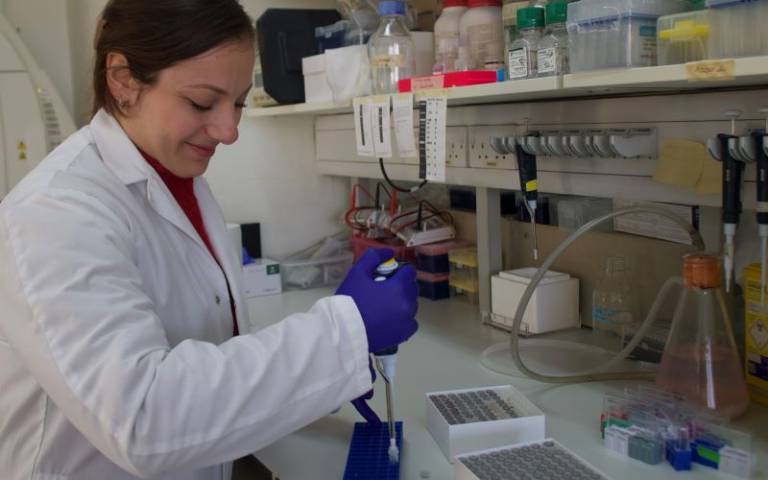Rare diseases are varied and life-threatening, yet most still remain undiagnosed and have no effective treatments. Now, scientists at the UCL Neurogenetics Lab are focusing on these conditions, to find diagnoses and treatments that could be crucial for scientific discovery.

There is a common misconception that rare diseases only affect a small number of people. Yet there are currently 350 million patients who have a rare disease globally and around one in 17 people are affected by them at some point in their lives.
Scientists estimate there are more than 7,000 rare diseases in total - including Huntington's disease, cystic fibrosis and muscular dystrophy. And they affect around 3.5 million people in the UK and 30 million across Europe.
Rare diseases are notoriously difficult to diagnose, and it can take years for patients to discover the cause of their symptoms.
This is partly because many conditions are so rare, it is challenging to obtain samples to rigorously study the diseases. Additionally, as 80% of rare diseases are caused by defective genes, previous technological limitations hindered researchers' understanding of the genetic basis of these conditions.
Nevertheless, by applying the latest technologies in rare disease genetics research, scientists at the UCL Neurogenetics Lab at the UCL Queen Square Institute of Neurology hope their studies into rare and ultra-rare neurodevelopmental and neurological conditions will improve diagnosis and understanding of the underlying disease mechanisms.
Further, as many rare diseases are severe forms of more common diseases, studies on rare diseases are crucial for identifying cellular and molecular pathways that are associated with the development of other more common diseases, potentially impacting millions more people.
Here, the team highlight some of their astonishing findings:
Uncovering ancient gene mutation solves the mystery of neurological condition in people of European descent
Attributes Dr Reza Maroofian and colleagues






